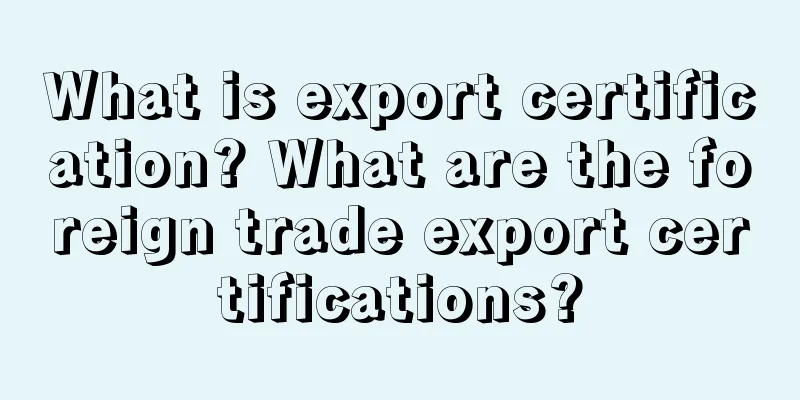What is export certification?
This needs to be determined based on the countries and regions where your company's products are exported. For example: export to the EU requires CE certification, export to Japan requires PSE, export to the United States requires UL, export to Saudi Arabia requires SASO certification, etc. Different countries have different certification requirements.
Taking the EU as an example, product export certification, in the EU market the "CE" mark is a compulsory certification mark. Whether it is a product produced by an EU company or a product produced in other countries, if you want to circulate freely in the EU market, you must affix the "CE" mark to indicate that the product complies with the basic requirements of the EU's "New Approach to Technical Harmonization and Standardization" directive. This is a mandatory requirement for products under EU law.
Now that we have some basic understanding of export certification, what are the foreign trade export certifications?
1: CE
CE (Conformite Europeenne) stands for European Unity. The CE mark is a safety certification mark that is regarded as a passport for manufacturers to open and enter the European market. Any product with the CE mark can be sold in European member states without having to comply with the requirements of each member state, thus achieving the free flow of goods within the EU member states.
2: RoHS
RoHS stands for The Restriction of the use of certain hazardous substances in Electronical and Electronic Equipment, which is the Directive on Restricting the Use of Certain Hazardous Substances in Electronic and Electrical Equipment, also known as Directive 2002/95/EC.
3: UL
UL is the abbreviation of Underwriter Laboratories Inc. UL Safety Testing Laboratory is the most authoritative in the United States and the largest private institution engaged in safety testing and certification in the world.
4: CCC
CCC stands for China Compulsory Certification. It is China's commitment upon joining the WTO and reflects the principle of national treatment. The country uses compulsory product certification for 149 products in 22 categories. The new national compulsory certification mark is named “China Compulsory Certification”. After the implementation of the China Compulsory Certification Mark, it will gradually replace the previously implemented "Great Wall" mark and "CCIB" mark.
5: GS
GS stands for Geprufte Sicherheit (Safety Certified), which is a safety certification mark issued by TÜV, VDE and other institutions authorized by the German Ministry of Labor. The GS mark is a safety mark accepted by many European customers. Usually GS certified products are sold at a higher price and are more popular.
6: PSE
PSE (Product Safety of Electrical Appliance & Materials) certification (called "suitability test" in Japan) is a mandatory market access system for electrical appliances in Japan and an important part of Japan's Electrical Appliances and Materials Safety Law. Currently, the Japanese government classifies electrical appliances into "specific electrical appliances" and "non-specific electrical appliances" in accordance with the provisions of Japan's Electrical Appliances and Materials Safety Law. "Specific electrical appliances" include 115 products, while "non-specific electrical appliances" include 338 products.
7: FCC
The Federal Communications Commission coordinates domestic and international communications by controlling radio, television, telecommunications, satellite, and cable. It involves more than 50 states, Columbia, and U.S. territories. Many radio application products, communication products and digital products require FCC approval to enter the US market.
8: SAA
The certification body for Australia's standards is the Standards Association of Australian, which means that all electrical products entering the Australian market must comply with local safety regulations. Due to the mutual recognition agreement between Australia and New Zealand, all products that have obtained Australian certification can smoothly enter the New Zealand market for sale. All electrical products must be SAA certified.
9: SASO
SASO is the abbreviation of Saudi Arabian Standards Organization. SASO is responsible for setting national standards for all daily necessities and products, which also include measurement systems, labeling, etc.
11: VDE
VDE stands for VDE Testing and Certification Institute, the German Association of Electrical Engineers, which is one of the most experienced testing, certification and inspection organizations in Europe.
12: CSA
CSA is the abbreviation of Canadian Standards Association, which is Canada's first non-profit organization dedicated to formulating industrial standards.
13: TÜV
TÜV (Technischer überwachüngs-Verein) means Technical Inspection Association in English. The TÜV mark is a safety certification mark specially customized by the German TÜV for component products and is widely accepted in Germany and Europe.
The above is some basic knowledge about export certification. If you want to get more in-depth information about export certification, please continue to pay attention!

